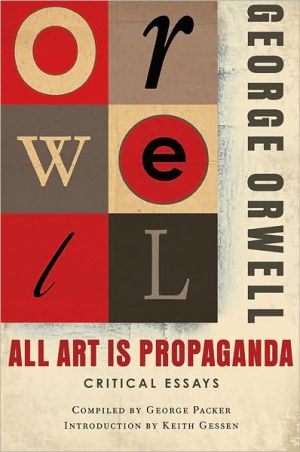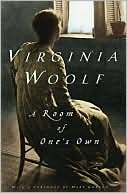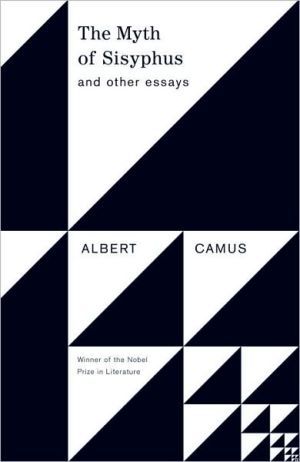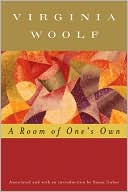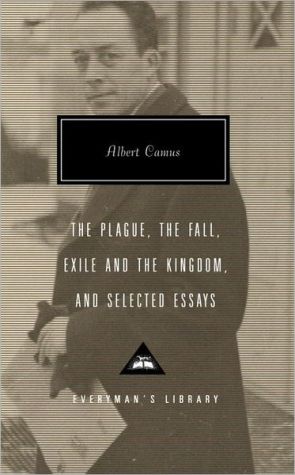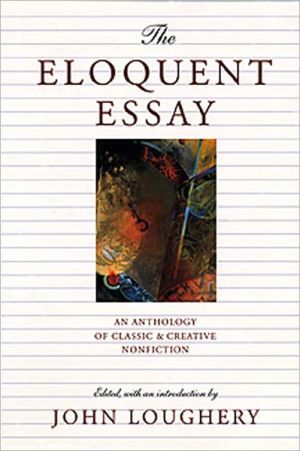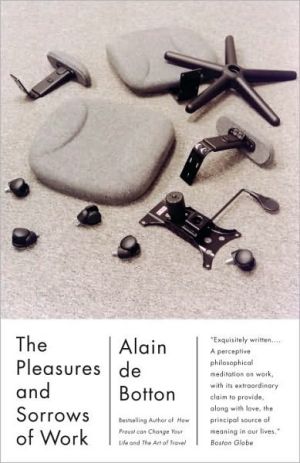All Art Is Propaganda: Critical Essays
As a critic, George Orwell cast a wide net. Equally at home discussing Charles Dickens and Charlie Chaplin, he moved back and forth across the porous borders between essay and journalism, high art and low. A frequent commentator on literature, language, film, and drama throughout his career, Orwell turned increasingly to the critical essay in the 1940s, when his most important experiences were behind him and some of his most incisive writing lay ahead.\ All Art Is Propaganda follows Orwell as...
Search in google:
As a critic, George Orwell cast a wide net. Equally at home discussing Charles Dickens and Charlie Chaplin, he moved back and forth across the porous borders between essay and journalism, high art and low. A frequent commentator on literature, language, film, and drama throughout his career, Orwell turned increasingly to the critical essay in the 1940s, when his most important experiences were behind him and some of his most incisive writing lay ahead. All Art Is Propaganda follows Orwell as he demonstrates in piece after piece how intent analysis of a work or body of work gives rise to trenchant aesthetic and philosophical commentary. With masterpieces such as "Politics and the English Language" and "Rudyard Kipling" and gems such as "Good Bad Books," here is an unrivaled education in, as George Packer puts it, "how to be interesting, line after line."The Barnes & Noble ReviewThe English language has played a cruel joke on George Orwell's reputation. It takes the form of an adjective, "Orwellian," that is (alas) all too useful in describing certain tendencies in political life. But the word's durability and lasting popularity has a perverse effect: it conveys precisely the opposite of Orwell's own sensibility or his qualities as an author.
Charles Dickens\ Inside the Whale, March 11, 1940\ Inside the Whale and Other Essays was published in London by Victor Gollancz Ltd on March 11, 1940. It contained three essays: "Charles Dickens," "Boys’ Weeklies," and "Inside the Whale."\ 1\ Dickens is one of those writers who are well worth stealing. Even the burial of his body in Westminster Abbey was a species of theft, if you come to think of it.\ When Chesterton wrote his introductions to the Everyman Edition of Dickens’s works, it seemed quite natural to him to credit Dickens with his own highly individual brand of medievalism, and more recently a Marxist writer, Mr. T. A. Jackson,1 has made spirited efforts to turn Dickens into a bloodthirsty revolutionary. The Marxist claims him as "almost" a Marxist, the Catholic claims him as "almost" a Catholic, and both claim him as a champion of the proletariat (or "the poor," as Chesterton would have put it). On the other hand, Nadezhda Krupskaya, in her little book on Lenin, relates that towards the end of his life Lenin went to see a dramatised version of The Cricket on the Hearth, and found Dickens’s "middle-class sentimentality" so intolerable that he walked out in the middle of a scene.\ Taking "middle-class" to mean what Krupskaya might be expected to mean by it, this was probably a truer judgment than those of Chesterton and Jackson. But it is worth noticing that the dislike of Dickens implied in this remark is something unusual. Plenty of people have found him unreadable, but very few seem to have felt any hostility towards the general spirit of his work. Some years ago Mr. Bechhofer Roberts published a full-length attack on Dickens in the form of a novel (This Side Idolatry), but it was a merely personal attack, concerned for the most part with Dickens’s treatment of his wife. It dealt with incidents which not one in a thousand of Dickens’s readers would ever hear about, and which no more invalidate his work than the second-best bed invalidates Hamlet. All that the book really demonstrated was that a writer’s literary personality has little or nothing to do with his private character. It is quite possible that in private life Dickens was just the kind of insensitive egoist that Mr. Bechhofer Roberts makes him appear. But in his published work there is implied a personality quite different from this, a personality which has won him far more friends than enemies. It might well have been otherwise, for even if Dickens was a bourgeois, he was certainly a subversive writer, a radical, one might truthfully say a rebel. Everyone who has read widely in his work has felt this. Gissing, for instance, the best of the writers on Dickens, was anything but a radical himself, and he disapproved of this strain in Dickens and wished it were not there, but it never occurred to him to deny it. In Oliver Twist, Hard Times, Bleak House, Little Dorrit, Dickens attacked English institutions with a ferocity that has never since been approached. Yet he managed to do it without making himself hated, and, more than this, the very people he attacked have swallowed him so completely that he has become a national institution himself. In its attitude towards Dickens the English public has always been a little like the elephant which feels a blow with a walking-stick as a delightful tickling. Before I was ten years old I was having Dickens ladled down my throat by schoolmasters in whom even at that age I could see a strong resemblance to Mr. Creakle, and one knows without needing to be told that lawyers delight in Serjeant Buzfuz and that Little Dorrit is a favourite in the Home Office. Dickens seems to have succeeded in attacking everybody and antagonizing nobody. Naturally this makes one wonder whether after all there was something unreal in his attack upon society. Where exactly does he stand, socially, morally and politically? As usual, one can define his position more easily if one starts by deciding what he was not.\ In the first place he was not, as Messrs. Chesterton and Jackson seem to imply, a "proletarian" writer. To begin with, he does not write about the proletariat, in which he merely resembles the overwhelming majority of novelists, past and present. If you look for the working classes in fiction, and especially English fiction, all you find is a hole. This statement needs qualifying, perhaps. For reasons that are easy enough to see, the agricultural labourer (in England a proletarian) gets a fairly good showing in fiction, and a great deal has been written about criminals, derelicts and, more recently, the working-class intelligentsia. But the ordinary town proletariat, the people who make the wheels go round, have always been ignored by novelists. When they do find their way between the covers of a book, it is nearly always as objects of pity or as comic relief. The central action of Dickens’s stories almost invariably takes place in middle-class surroundings. If one examines his novels in detail one finds that his real subject-matter is the London commercial bourgeoisie and their hangers-on—lawyers, clerks, tradesmen, innkeepers, small craftsmen and servants. He has no portrait of an agricultural worker, and only one (Stephen Blackpool in Hard Times) of an industrial worker. The Plornishes in Little Dorrit are probably his best picture of a working-class family—the Peggottys, for instance, hardly belong to the working class—but on the whole he is not successful with this type of character. If you ask any ordinary reader which of Dickens’s proletarian characters he can remember, the three he is almost certain to mention are Bill Sikes, Sam Weller and Mrs. Gamp. A burglar, a valet and a drunken midwife—not exactly a representative cross-section of the English working class.\ Copyright © George Orwell\ Compilation copyright © 2008 by The Estate of the late Sonia Brownell Orwell\ Foreword copyright © 2008 by George Packer\ Introduction copyright © 2008 by Keith Gessen\ All rights reserved. No part of this publication may be reproduced or transmitted in any form or by any means, electronic or mechanical, including photocopy, recording, or any information storage and retrieval system, without permission in writing from the publisher.\ Requests for permission to make copies of any part of the work should be submitted online at www.harcourt.com/contact or mailed to the following address: Permissions Department, Houghton Mifflin Harcourt Publishing Company, 6277 Sea Harbor Drive, Orlando, Florida 32887-6777.
contentsForeword by George Packer • ixIntroduction by Keith Gessen • xvii Charles Dickens • 1Boys’ Weeklies • 63Inside the Whale • 95Drama Reviews: The Tempest, The Peaceful Inn • 141Film Review: The Great Dictator • 144Wells, Hitler and the World State • 148The Art of Donald McGill • 156No, Not One • 169Rudyard Kipling • 177T. S. Eliot • 194Can Socialists Be Happy? • 202Benefit of Clergy: Some Notes on Salvador Dali • 210Propaganda and Demotic Speech • 223Raffles and Miss Blandish • 232Good Bad Books • 248The Prevention of Literature • 253Politics and the English Language • 270Confessions of a Book Reviewer • 287Politics vs. Literature: An Examination of Gulliver’s Travels • 292Lear, Tolstoy and the Fool • 316Writers and Leviathan • 337Review of The Heart of the Matter by Graham Greene • 346Reflections on Gandhi • 352Notes • 363GEORGE ORWELL (1903–1950) served with the Imperial Police in Burma, fought with the Republicans during the Spanish Civil War, and was a member of the Home Guard and a writer for the BBC during World War II. He is the author of many works of nonfiction and fiction. GEORGE PACKER is a staff writer for the New Yorker and author of The Assassin's Gate: America in Iraq and other works. He lives in Brooklyn. Keith Gessen was born in Russia and educated at Harvard. He is a founding editor of n+1 and has written about literature and culture for Dissent, the Nation, the New Yorker, and the New York Review of Books. He is the author of the novel All the Sad Young Literary Men.
\ Publishers WeeklyBefore he was a renowned novelist, George Orwell was a masterful essayist. Spanning the 1940s, this companion to Facing Unpleasant Facts: Narrative Essays showcases Orwell in an often unexpected cavalcade of observations on diverse subjects-in the literary field alone as varied as T. S. Eliot, Charles Dickens, Henry Miller, Graham Greene and Kipling. But since this is Orwell, the book takes on a range of subjects with gusto: power and bully worship and the deleterious influence of Catholicism on literature. Orwell's withering observations on professional academic criticism ("Politics and the English Language") are tempered by his sly "Confessions of a Book Reviewer" ("constantly inventing reactions towards books about which one has no spontaneous feelings whatever") and "Good Bad Books" (the "supreme example" being Uncle Tom's Cabin). Not to be overlooked is a freewheeling take on the naughty postcards of Donald McGill. Overall, this collection highlights the work of a writer who always put his money where his mouth was, reiterating frequently the importance of clarity of expression in enabling independent thought. (Oct. 13)\ Copyright © Reed Business Information, a division of Reed Elsevier Inc. All rights reserved.\ \ \ \ \ Kirkus ReviewsThe second of two volumes of the British author's essays, compiled by journalist George Packer. Orwell the critic is not quite the equal of his counterpart, the chronicler of people, places and political occurrences and institutions. Still, this somewhat uneven volume offers four superlative examples of this consummate realist's keen scrutiny of cultural touchstones and trends, milestones and minutiae. "Charles Dickens" is a long, heartfelt tribute that nevertheless eschews sentimentalizing the ultimate sentimentalist. Contrasting Dickens's fiction and reportage with similar work from fellow Victorians (e.g., Thackeray, Trollope, Charles Reade), Orwell painstakingly identifies the sources and the enduring strengths of Dickens's indomitable humanitarian sensibility and stubborn sense of social responsibility. "Inside the Whale" evaluates Henry Miller's renegade masterpiece Tropic of Cancer as a cheeky response to 19th-century rustic idealism, and a groundbreaking dramatization of the impact of expatriate experience on modern prose style. A penetrating comparison of two very different literary masters ("Lear, Tolstoy and the Fool") interprets the Russian author's criticism of Shakespeare as expressive of "the quarrel between the religious and the humanist attitudes towards life." Then there's the great 1945 essay "Politics and the English Language." In ringing tones that ought to shame every public figure who plays fast and loose with verifiable fact, Orwell gathers apropos anecdotal evidence of the manipulative imprecision of political language at its most recklessly dishonest, concluding, with soulful brevity and wit, that "the great enemy of clear language is insincerity." Elsewhere, hecasts a skeptical eye on Salvador Dali's puckish amorality and Gandhi's hard-won saintliness, finds low-brow entertainment value in the work of a smutty postcard artist and asks uncomfortable questions about hopeful utopian visions ("Can Socialists Be Happy?"). More often appreciative and ruminative than critical-but that's OK.\ \ \ The Barnes & Noble ReviewThe English language has played a cruel joke on George Orwell's reputation. It takes the form of an adjective, "Orwellian," that is (alas) all too useful in describing certain tendencies in political life. But the word's durability and lasting popularity has a perverse effect: it conveys precisely the opposite of Orwell's own sensibility or his qualities as an author.\ The Orwellian universe is a nightmare in which the historical record is constantly rewritten at the whim of those in authority, and reality itself defeated by the brute force of slogans framed with perfect cynicism. Such is the world emerging from Animal Farm and 1984, his last two novels, published in the 1940s, at the height of Stalinism. They have survived as something more than historical documents, for the urge to turn language into a weapon has outlasted the Cold War, too. But no reader who is familiar only with those books really knows George Orwell. For that, you must read his essays, which provide an education in the urgent need to avoid lying to oneself.\ Orwell wrote other, less politically topical novels; they remain in print mainly because his name is on them. Each has its moments, but they are not Orwell's best moments, really -- most of which came in the course of his nonfiction writing. Most of it appeared in the form of articles, reviews, and columns written (often very quickly) for magazines and newspapers. Two volumes compiled and edited by George Packer, All Art Is Propaganda: Critical Essays and Facing Unpleasant Facts: Narrative Essays, attempt to winnow out representative selections of the best work to be found among Orwell's journalism.\ I want to insist on that last word in spite of a certain literary and academic squeamishness that insists on equating journalism with the ephemeral -- and both with the trivial. Orwell feels no obligation to respect this attitude, or the distinctions underlying it. He ignores the difference between the trivial and the profound; his writing is all of a piece. There is not much difference between the quality of mind Orwell brings to scrutinizing Jonathan Swift or T. S. Eliot for literary magazines and his newspaper columns about the behavior of American G.I.s in London or the proper way to prepare a cup of tea.\ His friend Arthur Koestler once said that snobbery is, in the final analysis, a willful form of stupidity: a way of narrowing one's attention to the world through the lazy expedient of disdain. Orwell is at war with snobbery. There is even something willed about it, leading him to write not only alert and thoughtful analyses of pulp fiction, "smutty" postcards, and adventure magazines aimed at schoolboys, but also an unforgettable account of his own preadolescent years in a boarding school where the fine grades of class were turned into a blunt instrument for mental torture. (That memoir, "Such, Such Were the Joys," which appears as the final item in Facing Unpleasant Facts, was among the last things Orwell finished; but in some ways it is the best starting point for a reader first discovering Orwell's nonfiction.)\ Orwell carried his egalitarian crusade a step further by making everything he wrote -- even a short review of a forgettable play -- both pointed in argument and well turned as prose. The results are not uniformly excellent: Only a mediocrity is always at his best. But each of Orwell's pieces, no matter what the format or the occasion, displays a force of concentration that comes from trying to do the best work he can, at the time. It is pride of craftsmanship. But I think there may be more to it than that.\ Everyone remembers Orwell's most sinister creation: Newspeak, the official language of the Inner Party in 1984. The vocabulary of Newspeak shrinks all the time; so does its user's power even to imagine challenging Big Brother. This was an extrapolation of the very worst tendencies of Stalinist jargon, but Orwell saw comparable tendencies emerging under the pressure of mass media. He spent much of World War Two writing for BBC radio, an experience that shaped his account of Oceania's bureaucracy. His essay "Politics and the English Language," published in early 1946, acknowledged the seductive force of standard phrases: "They will construct your sentences for you -- even think your thoughts for you, to a certain extent -- and at need they will perform the important service of partially concealing your meaning even from yourself."\ Orwell's struggle against political totalitarianism is always unmistakable. Here, he is flagging something else -- something less readily challenged by overt polemic: the tendency to brainwash ourselves through sheer laziness. "This invasion of one's mind by ready-made phrases," he goes on to say, "can only be prevented if one is constantly on guard against them, and every such phrase anaesthetizes a portion of one's brain." Every page of Orwell's nonfiction seems either to set up a protective barrier against such invasions or to scrutinize the various reasons we have to crave the numbness.\ What makes Orwell a humane essayist, rather than a tiresome scold, is that he accepts the existence of this craving and doesn't propose to abolish it entirely. He was a socialist but never a utopian. An insistence on the permanent intimacy between the best and the worst parts of our nature is as close to a dogma as he ever gets. "On the whole," he writes, "human beings want to be good, but not too good, and not quite all the time."\ As a longtime reader of Orwell, I would say the same thing about these two volumes of his selected essays: they are good, but not too good, and not quite all the time. All Art Is Propaganda seems the better edited of the two, containing most of the major critical writings. (The omission of his essay on George Gissing, a Victorian novelist he resembled in a number of intriguing ways, is unfortunate. And room should have been made for at least one of Orwell's commentaries on James Burnham, who was a kind of proto-neoconservative.) A few of the pieces in Facing Unpleasant Facts can be aptly described, per the subtitle, as "narrative essays." Most are nothing of the sort, though -- being rather examples of the familiar essay, in which the flow of observations is not tethered to any effort at storytelling.\ For someone encountering Orwell's nonfiction for the first time, they are a good point of departure. But in the best case, they will encourage readers to explore the four volumes of The Collected Essays, Journalism, and Letters of George Orwell or the hefty Everyman Library edition of his nonfiction. --Scott McLemee\ Scott McLemee writes the weekly column "Intellectual Affairs" for Inside Higher Ed. He is a member of the board of directors of the National Book Critics Circle.\ \ \
